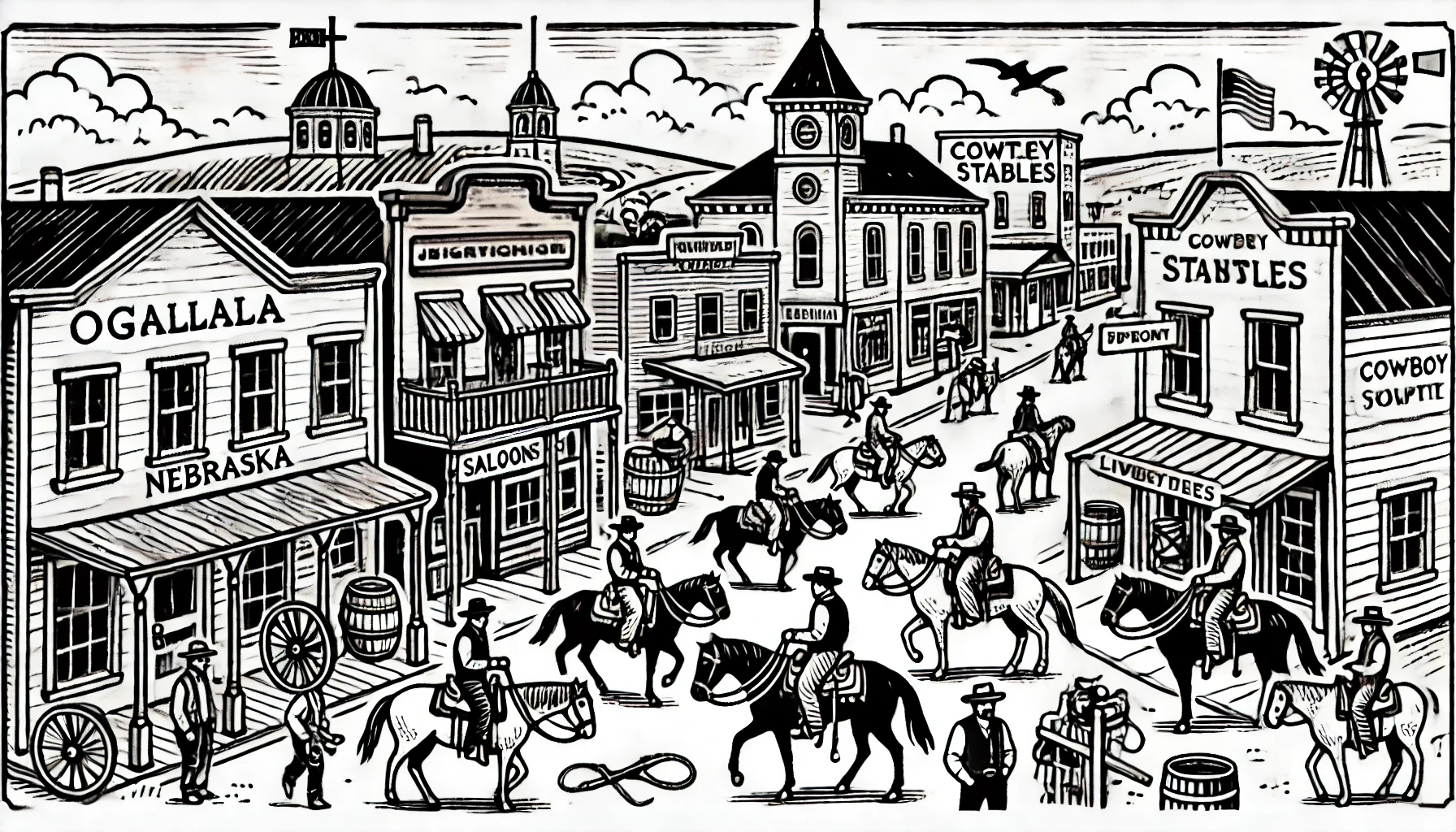Southwestern Bison Traditions in Nebraska's Cuisine

Traveling through Nebraska, one may encounter a fascinating culinary tradition that reflects the rich cultural heritage of the region - Southwestern Bison traditions. This tradition has been shaped by the Native American communities, particularly the Omaha, Otoe, and Lakota tribes, who have a long history of reverence and reliance on bison as a source of sustenance, ceremonial significance, and cultural identity.
At the heart of Southwestern Bison traditions is the ceremony surrounding the harvest and consumption of bison meat. One notable example is the Omaha Tribe's annual powwow, held near Macy, Nebraska, where bison is often served at communal feasts. The preparation and sharing of bison meat is a sacred act that strengthens social bonds and reinforces cultural values. This is exemplified by the Omaha Tribe's adherence to traditional bison harvesting practices, which involve skilled hunters on horseback, armed with bows and arrows, in honor of their ancestors.
In line with their holistic approach to living, the indigenous communities have also incorporated bison into their medical and spiritual practices. For instance, the Lakota people, whose ancestral lands span present-day Nebraska, have traditionally used bison organs and fats for medicinal purposes. This is indicative of a deep understanding of the natural world, as well as the place of human beings within it. Southwestern Bison traditions highlight a reciprocal relationship with the environment, emphasizing respect, gratitude, and conservation of natural resources.
Beyond its cultural significance, the emphasis on bison in Southwestern traditions has had significant economic implications. The growth of bison farming in Nebraska has led to the establishment of successful indigenous-led ventures, such as the Omaha Tribe's Cangleska Wakan Ranch near Macy, which offers high-quality bison products. The interest in locally sourced bison meat and hide products contributes to the preservation of a unique cultural landscape, even as it supports the economic growth of the region.
Furthermore, several Southwestern Bison-related events take place across Nebraska, often featuring food stalls offering traditional dishes. These gatherings serve as celebrations of regional identity, communal unity, and appreciation for the bison that underpins it. Food festivals, art exhibitions, and educational workshops are held in the summer at specific venues such as the annual Gathering of the Elders in Alliance, Nebraska.
Keeping with Nebraska's mission to honor its cultural past while embracing contemporary tastes, several contemporary restaurants, like Council Oak Bistro in downtown Omaha, are actively reinterpreting and reimagining Southwestern Bison traditions. Using a modern twist, chefs seamlessly blend indigenous knowledge with culinary creativity to produce exceptional culinary experiences.
In line with Nebraska's prominent bison legacy, further research and understanding of this subject shines a brighter light on this fascinating piece of history, ensuring the longevity of key tribal cultural heritage sites. Therefore, delving into this realm not only satiates the curious palate but helps strengthen Nebraska's intricate food heritage.
This deeper exploration reveals far more than taste or festive flavor. Beyond revealing nuanced indigenous cultural practices in this modern expression, this tradition, deeply rooted in everyday culture, shares essential knowledge on North American community cohesion and sustainable agricultural methods.
At the heart of Southwestern Bison traditions is the ceremony surrounding the harvest and consumption of bison meat. One notable example is the Omaha Tribe's annual powwow, held near Macy, Nebraska, where bison is often served at communal feasts. The preparation and sharing of bison meat is a sacred act that strengthens social bonds and reinforces cultural values. This is exemplified by the Omaha Tribe's adherence to traditional bison harvesting practices, which involve skilled hunters on horseback, armed with bows and arrows, in honor of their ancestors.
In line with their holistic approach to living, the indigenous communities have also incorporated bison into their medical and spiritual practices. For instance, the Lakota people, whose ancestral lands span present-day Nebraska, have traditionally used bison organs and fats for medicinal purposes. This is indicative of a deep understanding of the natural world, as well as the place of human beings within it. Southwestern Bison traditions highlight a reciprocal relationship with the environment, emphasizing respect, gratitude, and conservation of natural resources.
Beyond its cultural significance, the emphasis on bison in Southwestern traditions has had significant economic implications. The growth of bison farming in Nebraska has led to the establishment of successful indigenous-led ventures, such as the Omaha Tribe's Cangleska Wakan Ranch near Macy, which offers high-quality bison products. The interest in locally sourced bison meat and hide products contributes to the preservation of a unique cultural landscape, even as it supports the economic growth of the region.
Furthermore, several Southwestern Bison-related events take place across Nebraska, often featuring food stalls offering traditional dishes. These gatherings serve as celebrations of regional identity, communal unity, and appreciation for the bison that underpins it. Food festivals, art exhibitions, and educational workshops are held in the summer at specific venues such as the annual Gathering of the Elders in Alliance, Nebraska.
Keeping with Nebraska's mission to honor its cultural past while embracing contemporary tastes, several contemporary restaurants, like Council Oak Bistro in downtown Omaha, are actively reinterpreting and reimagining Southwestern Bison traditions. Using a modern twist, chefs seamlessly blend indigenous knowledge with culinary creativity to produce exceptional culinary experiences.
In line with Nebraska's prominent bison legacy, further research and understanding of this subject shines a brighter light on this fascinating piece of history, ensuring the longevity of key tribal cultural heritage sites. Therefore, delving into this realm not only satiates the curious palate but helps strengthen Nebraska's intricate food heritage.
This deeper exploration reveals far more than taste or festive flavor. Beyond revealing nuanced indigenous cultural practices in this modern expression, this tradition, deeply rooted in everyday culture, shares essential knowledge on North American community cohesion and sustainable agricultural methods.
